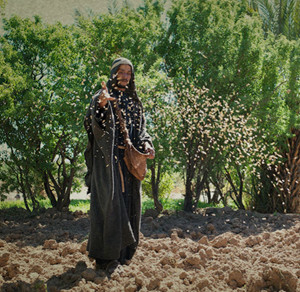15th Sunday in Ordinary Time - Seeds and Good Ground
Jesus was certainly the master storyteller. He knew exactly how to speak about profound matters in simple, earthy terms. He spent the brief period of His public life describing the kingdom of God but always in images that the average person could understand. We hear Him speak of seeds and harvest, of good and bad fruit, of faithful and worthless servants, of prodigal sons and good Samaritans, of fish in the sea and birds in the air. He used all of these images to plant the truth of God's love into the minds and hearts of people. Not just those who lived during His lifetime but for those who would read or hear His words in future ages. And especially for us today.
 I often think about this as I read through the Scriptures or listen to a homily. I sometimes look around the church and see many faces, Most of them seem to be attentive and receptive. But I also know that behind the mask of attention there can be countless distractions, anxieties and fears. People come together to celebrate the Eucharist from lives that can be filled with all sorts of challenges and troubles, with great sorrow or profound doubt. What breaks through the barrier of their distraction? What touches their inmost feelings? What do they bring home with them, to family and to work?
I often think about this as I read through the Scriptures or listen to a homily. I sometimes look around the church and see many faces, Most of them seem to be attentive and receptive. But I also know that behind the mask of attention there can be countless distractions, anxieties and fears. People come together to celebrate the Eucharist from lives that can be filled with all sorts of challenges and troubles, with great sorrow or profound doubt. What breaks through the barrier of their distraction? What touches their inmost feelings? What do they bring home with them, to family and to work?
(And in looking about the church like this, I also realize how easily I have distracted myself from listening and digesting the Word.)
We need to prepare "good ground." It's not just a matter of hearing sounds or reading words. We must allow the Spirit of the Lord to hear and read with us. It's not just a matter of human wisdom and understanding. We want to perceive what the living God is saying to us.
So having "good ground" really means being open to and aware of the presence of God. It means being able to tune out the distractions. It means letting go of so many of the thoughts and cares that seem so important, and making room for the power and love of God.
We do this at other times in our daily routines. If we're going to read a book, or prepare a meal, or see a movie, or make an important business decision, we must be disposed, attentive, focused and present. If we are going to share the heartache of our child or of our marriage partner, or offer comfort to someone who is seriously ill, or console someone at the loss of a spouse, we must be totally present, attentive, listening with heart, mind and spirit, as well as body. So, too, we must prepare ourselves to receive the Word of God by a quiet and prayerful attitude of both mind and heart, allowing the Spirit to till the soil of our inner selves, to prepare good ground for precious seed that He so generously scatters.
But once we have received this seed, we must protect it, nourish it and cultivate it. What Jesus warns against can so easily happen, especially in the pace and turmoil of today! The seed may never take root, because we become arid with worry. It may be choked to death by our worldly and selfish concerns. It may be scattered to the winds by the relentless whirlwind of activity that we engage in. Only in the good ground of a person who lives each day in faith and love will the seed of God's Word bring forth the harvest of holiness and happiness that He intends.
When you really come down to it, the seed is being sown everywhere. For Matthew, faith is a gift; but there is no genuine faith unless it is translated into decisive action. We have to ask, then, what happens to this gift. Does it come to maturity and bear fruit? Does it enrich and change our lives and the world we live in? Where are the signs of a rich harvest?
I guess it all depends on what do we do with the gift. "Blessed are your eyes because they see, and your ears, because they hear."